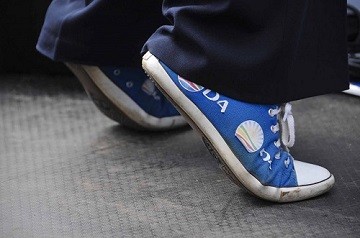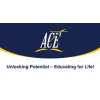Da driving force to stop Home Education
Home educators fiercely oppose the Policy on Home Education (PHE), published in 2018, and the Basic Education Law Amendment (BELA) Bill that is currently being considered.
It is assumed that national government is the driving force behind curbing of rights and freedoms of home educators. Closer inspection however reveals other driving forces.
It started in the Western Cape
The initiative to clamp down on home educators did not come from the national ANC government, but from the DA governed Western Cape. The Western Cape Provincial School Education Act provides that the requirements and conditions for the registration of a learner for education at home shall be “as prescribed”. However, the Western Cape Government never determined any regulations or policies to describe what “as prescribed” means.
In 2014 the Western Cape Education Department (WCED) attempted to fill this gap by publishing a policy on home education. Click here to read the policy. This policy would severely restrict the freedom of home educators through the following means:
- Creating a new definition of “education at home”.
- Requiring registration per phase.
- Requiring registration not later than 30 September of the year preceding the start of home education.
- Requiring assessment by a “competent assessor” at the end of every phase.
- A prohibition on the forming of tutorial groups or clusters with other learners.
When this policy was published for public comment, the reaction of home educators was so fierce that the MEC for Education, Donald Grant, withdrew the policy within 3 weeks.
Move from Western Cape to National government
After the policy was withdrawn in 2014, the Pestalozzi Trust enquired about the status of home education in the Western Cape. The Trust received the following feedback from Adv. Lynn Coleridge-Zils of the WCED: “Lastly, the Western Cape Provincial School Education Act, 1997 (Act 12 of 1997), in section 36, provides that the requirements and conditions for the registration of a learner for education at home shall be as prescribed. To this end, the Western Cape Education Department has withheld the determination of a policy or regulations to this effect subject to amendments to be effected on the South African Schools Act via the Basic Education Laws Amendment which is currently being formulated by the Department of Basic Education.”
When the BELA Bill and the PHE were published, the following similarities with the Western Cape Policy were striking:
- The definition of home education of the WCED Policy was adopted almost verbatim in BELA Bill and the PHE.
- The requirement to register for every phase was not in BELA Bill of 2017, but added in 2019.
- The requirement to register by September was included in the PHE.
- The requirement for assessment by an “competent assessor” was included in BELA Bill and the PHE.
- The prohibition to use “illegal independent educational institutions” (incl. tutor centres) was included in the PHE.
On 26 November 2018, after the publication of PHE, Cape Home Educators and the Pestalozzi Trust had a meeting with MEC Debbie Schafer, during which Adv. Lynn Coleridge-Zils was also present. During this meeting, MEC Schafer confirmed her support for the PHE.
When the Pestalozzi Trust enquired on the status of BELA Bill in 2019, the Trust received the following response from Adv. Rudman of the DBE: “On Thursday and Friday this week, I am meeting with the home education officials of the Western Cape Education Department, who have been contributing to the refining of the home education provisions of the BELA Bill.”
Who drives home education policy?
The trail of evidence seems to indicate the following about the source of the driving force:
- The DA’s 2013 policy document on education states:“… we believe that it is possible to create a legislative and policy framework that allows for alternative models.” and home schooling is mentioned as one of these models.
- In 2014 the DA governed Western Cape government took the first initiative to infringe on the liberties of home educators by issuing a draconian policy.
- After the Western Cape government withdrew the above policy, it continued to make its officials available to insert the same provisions in national policy and law.
- In its 2019 election manifesto, home education is not mentioned. Likewise in the document published after the 2020 Policy Conference.
The evidence seems to indicate that the DA was open to alternate forms of education about a decade ago, but since then moved towards a policy based on school-based education only, and used its influence to suppress alternate forms of education, not only in the Western Cape, but also in the rest of the country.
Legal & Research
Centres
Homeschool ABC
Support
Curriculums
Has no content to show!

































Comments 1
Anecdotal evidence indicates that schools and sport clubs in the Western Cape make it increasingly difficult for homelearners to take part in sport activities without a CEMIS number.